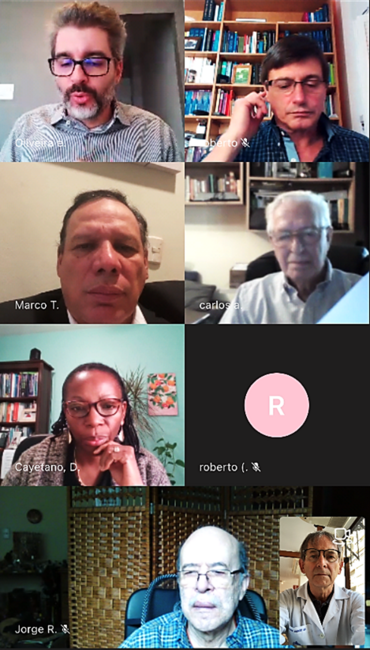8 April 2021. - The Mental Health and Substance Use Unit of the Pan American Health Organization (PAHO) formally launched the final evaluation process of the Strategy and Plan of Action on Epilepsy in the Americas. This document was approved in 2011 by PAHO's 51st Directing Council and implemented over a decade. It is now up to the Directing Council, which will take place in September 2022, to analyze its compliance during this period. The Plan was a historic milestone at that moment, as it was the first time ever that the PAHO/WHO governing bodies discussed the issue of epilepsy and approved a regional plan of action.
As planned, it was decided to implement a highly participatory evaluation process, in conjunction with national authorities and other national and international stakeholders. A working group was established, comprising PAHO, the PAHO/WHO Collaborating Centers in the Region, the International League Against Epilepsy (ILAE) and the International Bureau for Epilepsy (IBE).
The group held its first virtual meeting on 8 April, where a roadmap for the evaluation process was approved. A preliminary analysis of the plan's indicators and compliance projections for 2021 was also presented. The event was chaired by Dr. Renato Oliveira de Souza, Chief of PAHO's Mental Health and Substance Use Unit, who gave the opening remarks. Dr. Claudina Cayetano facilitated the session. Representatives from the PAHO/WHO Collaborating Centers in Chile and Honduras, as well as from ILAE and IBE also participated.
In parallel to this evaluation process, they are also looking ahead to the future. WHO is currently engaged in the preparation of an intersectoral global action plan on epilepsy and other neurological disorders, in consultation with regional offices and Member States. PAHO is part of this effort. There are multiple reasons for these programs:
- The stigma and discrimination surrounding people with epilepsy is an obstacle for exercising their human rights and social integration.
- Nervous system disorders are the leading cause of disability-adjusted life years and the cause, globally, of 9 million deaths per year.
- Nearly 80% of people with epilepsy live in low- and middle-income countries, where the treatment gap is between 50% and 75%.
- Many neurological conditions are preventable and are known to adversely affect brain development early in life.
- The COVID-19 pandemic has highlighted the relevance of neurology to global public health.
Participants highlighted the fact that epilepsy is one of the most common chronic neurological disorders in the world, and that scientific advances have now improved the understanding and management of this disease. All this, coupled with political will, places us at an opportune moment for the Pan American Health Organization and its Member States to prioritize this important public health problem.

